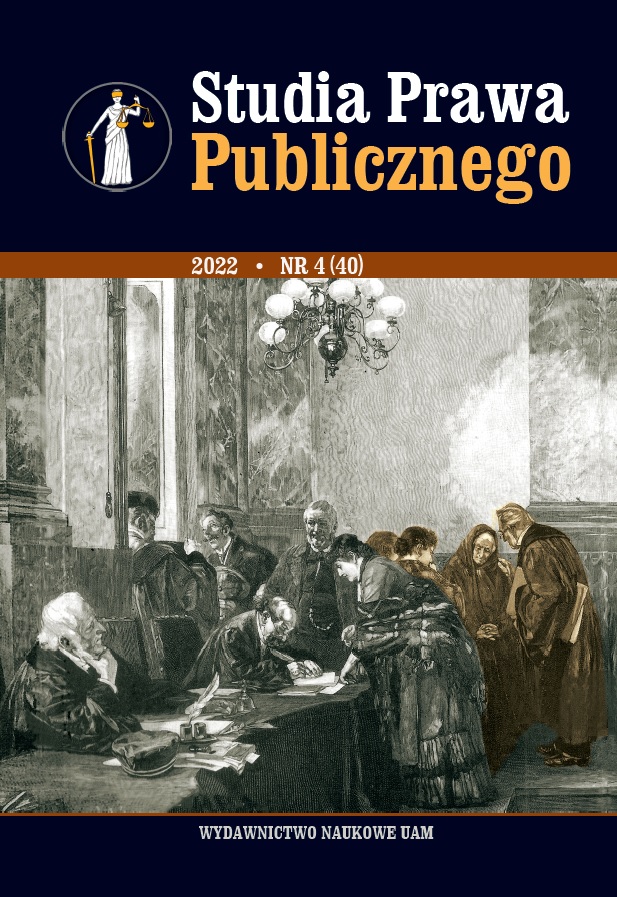Le diable est dans les détails – czyli kilka refleksji na temat kontrolno-nadzorczych dylematów dotyczących regulaminów organizacyjnych urzędów gmin
Le diable est dans les détails – or a few observations on the control-cum-supervision dilemmas related to the house rules of municipality offices
Author(s): Piotr LisowskiSubject(s): Public Administration, Public Law, Administrative Law
Published by: Uniwersytet im. Adama Mickiewicza w Poznaniu
Keywords: house rules of a municipality office; supervision; independence; judicial control;
Summary/Abstract: The paper is based on an analysis of the provisions pertaining to the adoption of the house rules of municipality offices and the regulations specifying the rules and the procedure of exercising supervision over these acts of executive bodies, as well as of subjecting them to the direct control of administrative courts. This analysis has revealed that the approach to the form in which the above issues are regulated should be revised towards such regulations and practice of applying law that would facilitate having more regard for the attributes of the independence of self-governmental administration in this field. The treatment that these features have received (especially in the practice of supervisory organs and judicature’s output) has so far not explored or respected this potential. Taking also into account the experience (both doctrinal and related to administrative practice) gathered in the period of over 32 years since the reestablishment of territorial self-government in Poland, the paper thus argues that, at least in certain areas, the process of overcoming the limitations linked to the rationing – so to speak – of the attributes of decentralization (especially: of independence as one of its components) should be initiated. Therefore, the paper postulates in this context that invalidity sanction be substituted by the derogation in the form of revocation (that is: an ex tunc effect should be substituted by an ex nunc effect). The paper also signals that, when dealing with these forms of self-governmental activities, it may be possible to depart from the automatic application of the temporary protection related to the delivery of a supervisory adjudication (i.e. from the mechanism that presumes automatic sui generis acceleration of the enforceability of a supervisory adjudication). This stance has been additionally supported by the discussion of the specificity of organizational administrative law (in particular – with regard to the acts of non-municipal law, while allowing for the complex character of the house rules of municipality offices) which takes into account the conception of institutional choice.
Journal: Studia Prawa Publicznego
- Issue Year: 40/2022
- Issue No: 4
- Page Range: 45-62
- Page Count: 18
- Language: Polish

